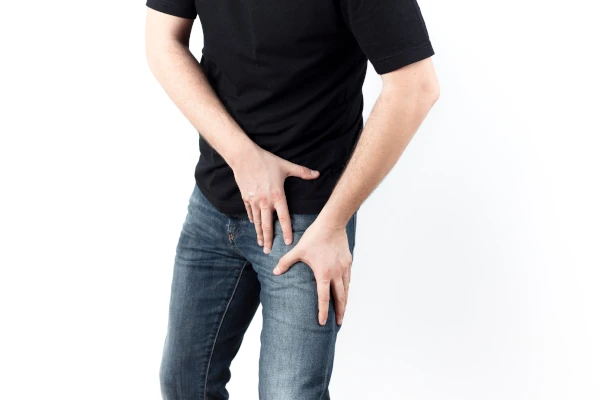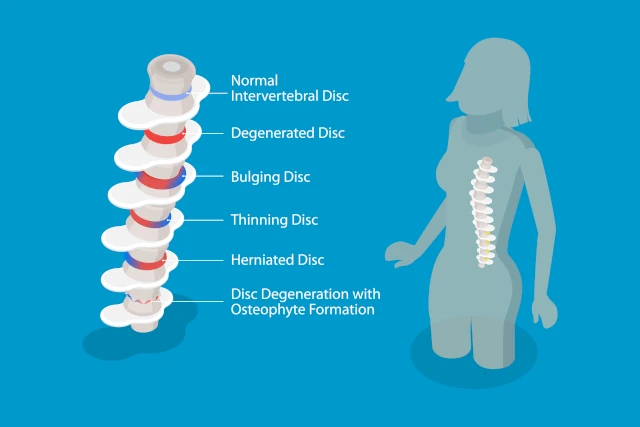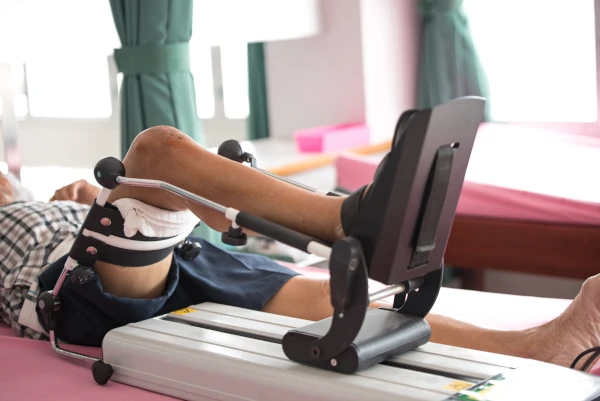
Hip Pain When Walking or Sleeping? Discover Fast Relief With These Expert Exercises
- Dr. Nitika Sharma (MPT)
Connect with our expert physiotherapist for personalized physiotherapy advice.
Introduction
Hip pain can be more than just uncomfortable — it can disrupt daily activities like walking, sleeping, and even sitting. If you have been feeling stiffness, aching, or sharp pain in your hips, especially when you are moving or lying down, you are not alone.
In this guide, we’ll explore the common causes of hip pain, effective exercises and stretches for relief, treatment options, and practical tips to prevent hip injuries in the future.
What Causes Hip Pain When Walking or Sleeping?
- Osteoarthritis: Age-related wear and tear in the hip joint can cause stiffness and pain during movement and at night.
- Hip Bursitis: Inflammation of the fluid-filled sacs (bursae) around the hip joint can lead to sharp pain, especially when lying on the affected side.
- Tendonitis: Overuse or strain on hip tendons can trigger pain during walking or exercise.
- Muscle Strain or Weakness: Imbalances in surrounding muscles like the glutes, hamstrings, or hip flexors can create stress on the hip joint.
- Labral Tear: Injury to the cartilage that surrounds the hip socket can cause clicking, locking, or deep hip pain.
- Sciatica: Compression of the sciatic nerve may radiate pain from the lower back to the hips and legs.
- Poor Sleep Posture: Sleeping positions that place pressure on the hip or spine misalignment can worsen symptoms at night.
Symptoms of Hip Pain
- Sharp or dull ache in the hip
- Pain radiating to the groin, thigh, or buttocks
- Difficulty walking, climbing stairs, or standing up
- Stiffness, especially after rest or prolonged sitting
- Increased discomfort while sleeping on the affected side
Effective Exercises & Best Stretches to Relieve Hip Pain
Exercise Tip: Always consult a healthcare professional before starting a new exercise program if you are experiencing severe hip pain.
- Hip Flexor Stretch
How to do it: Kneel on one knee with the other foot in front. Lean forward gently, feeling a stretch in the front of the hip. Hold for 20–30 seconds. - Glute Bridges
How to do it: Lie on your back with knees bent. Press through your heels and lift your hips toward the ceiling. Hold for a few seconds, then slowly lower. Repeat 10–15 times. - Clamshells
How to do it: Lie on your side with knees bent. Keeping feet together, lift the top knee as high as possible without moving your pelvis. Repeat 15–20 times on each side. - Standing Hip Abduction
How to do it: Stand upright and lift one leg sideways without tilting your torso. Perform 10–15 repetitions on each side. - Figure Four Stretch
How to do it: Lie on your back, cross one ankle over the opposite thigh, and gently pull the lower leg toward your chest. Hold for 30 seconds. - Seated Hamstring Stretch
How to do it: Sit with one leg extended. Lean forward from your hips toward the extended leg, keeping your back straight. Hold for 20–30 seconds. - Child’s Pose (Yoga Stretch)
How to do it: Kneel down, stretch your arms forward, and sit back onto your heels. This gentle stretch relaxes the hips and lower back.
Treatment Options for Hip Pain
- Physiotherapy: A tailored rehabilitation plan can strengthen muscles, improve flexibility, and correct movement patterns.
- Medications: Anti-inflammatory drugs (NSAIDs) can temporarily relieve pain and swelling.
- Heat and Ice Therapy: Applying heat can relax tight muscles, while ice reduces inflammation.
- Assistive Devices: Using a cane or walker temporarily can reduce pressure on the affected hip.
- Injections: Corticosteroid injections may be recommended for persistent inflammation.
- Surgical Intervention: Surgery is considered only when conservative treatments fail, especially in severe cases like labral tears or advanced osteoarthritis.
Expert Tips to Prevent Future Hip Injuries
- Strengthen Core and Hip Muscles: A strong core and hips provide better stability and alignment during movement.
- Warm Up and Cool Down: Always warm up before exercising and stretch afterward to keep muscles flexible.
- Maintain a Healthy Weight: Extra weight places more stress on hip joints, accelerating wear and tear.
- Use Proper Posture: Avoid slouching while sitting or standing, and use ergonomic chairs and mattresses.
- Choose Supportive Footwear: Shoes with proper arch support can improve alignment and reduce hip strain.
- Modify Sleeping Position: Sleep with a pillow between your knees if you sleep on your side, or under your knees if you sleep on your back.
Conclusion
Hip pain when walking or sleeping can be both frustrating and debilitating. Fortunately, with the right exercises, stretches, treatments, and lifestyle changes, you can significantly reduce pain, promote healing, and prevent future injuries.
If your symptoms persist despite trying these strategies, consulting a physiotherapist or healthcare provider can provide a personalized plan for lasting relief.
External Link Suggestion:
Connect with our expert physiotherapist for personalized physiotherapy advice.



